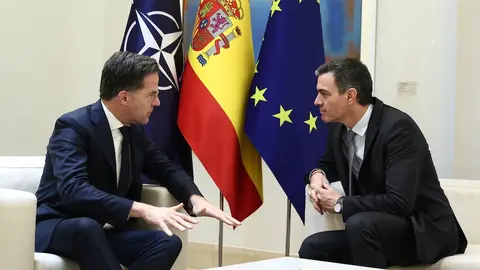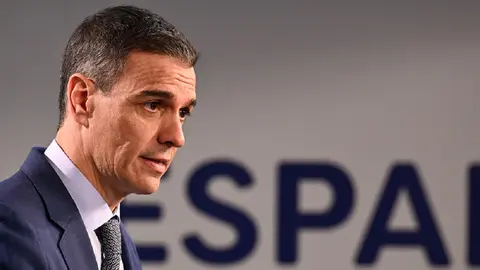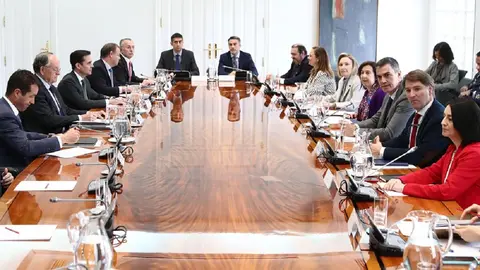Sánchez's economic advisor is the wise man chosen to fill the 2% gap
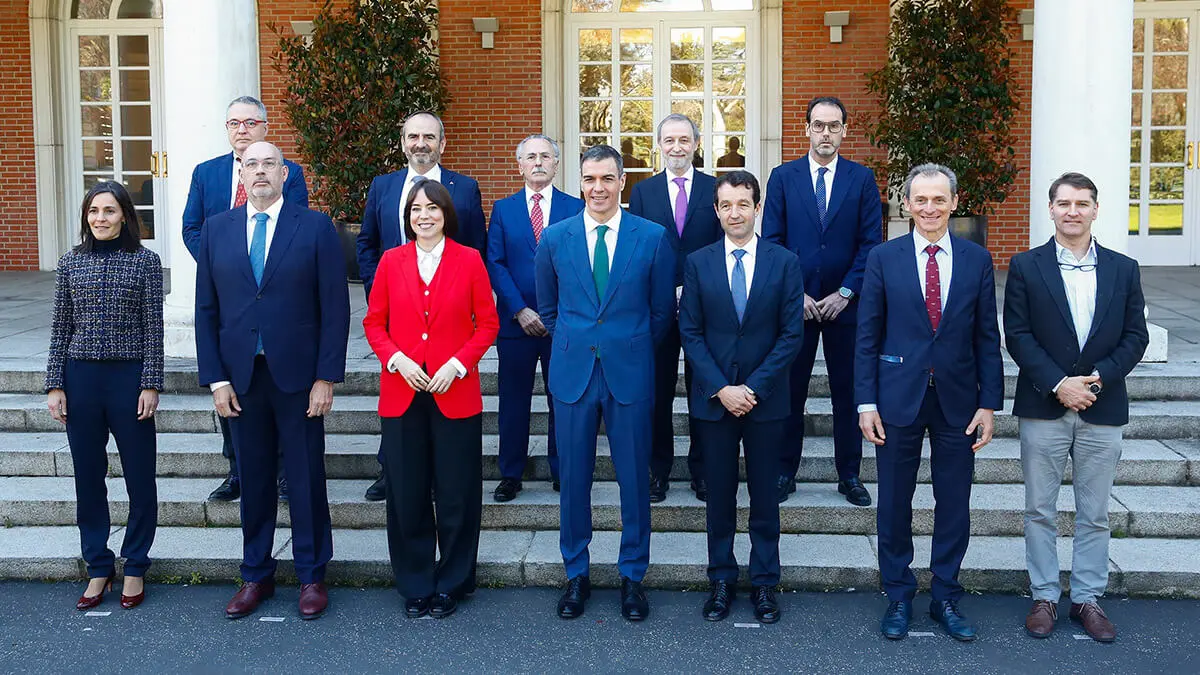
As lack of resources sharpens the wits, President Sánchez has already brought together two groups of important businessmen and, in a few hours, he will do the same with a third, so that, using their imagination and racking their brains, they can help him get out of the quagmire in which he is up to his neck with the European Union and NATO.
Two days after his failed speech in the plenary session of the Congress on 26th March, Sánchez has sent for three ministers and 14 senior executives of Spanish defence, space, security and telecommunications companies to the Moncloa Palace, aware of the short time he has left to go to the NATO summit of heads of state and government in The Hague on 24th June with his homework done.
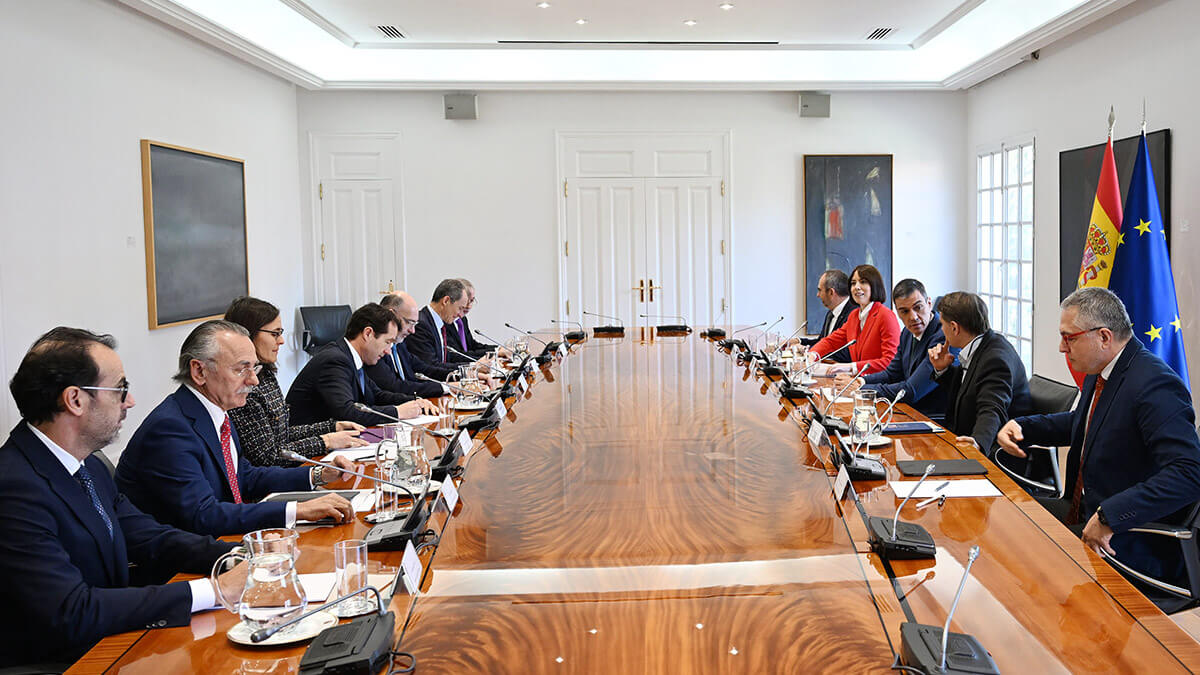
The reason for sounding the alarm is to ask his guests at Moncloa to provide him with suggestions on how to fill to the brim the half-empty sack of the 2 per cent of GDP dedicated to defence, an economic volume that he has committed to reaching in the shortest possible time and no longer in 2029. To top it all off, today, Monday 31st March, the president has summoned representatives of the Spanish cybersecurity sector in the early afternoon for the same purpose.
He is calling on the three groups and setting them the challenge of presenting him with initiatives, projects and programmes with which to fill the Spanish version of the Commission President Ursula von der Leyen's ReArming Europe plan. Sánchez wants Brussels to see that his government is rapidly increasing its investment in defence... but without the Spanish people noticing. If the move goes well, he will be able to boast about his, for the moment named, ‘great plan for the development and promotion of Spanish security and defence technology and industry’.
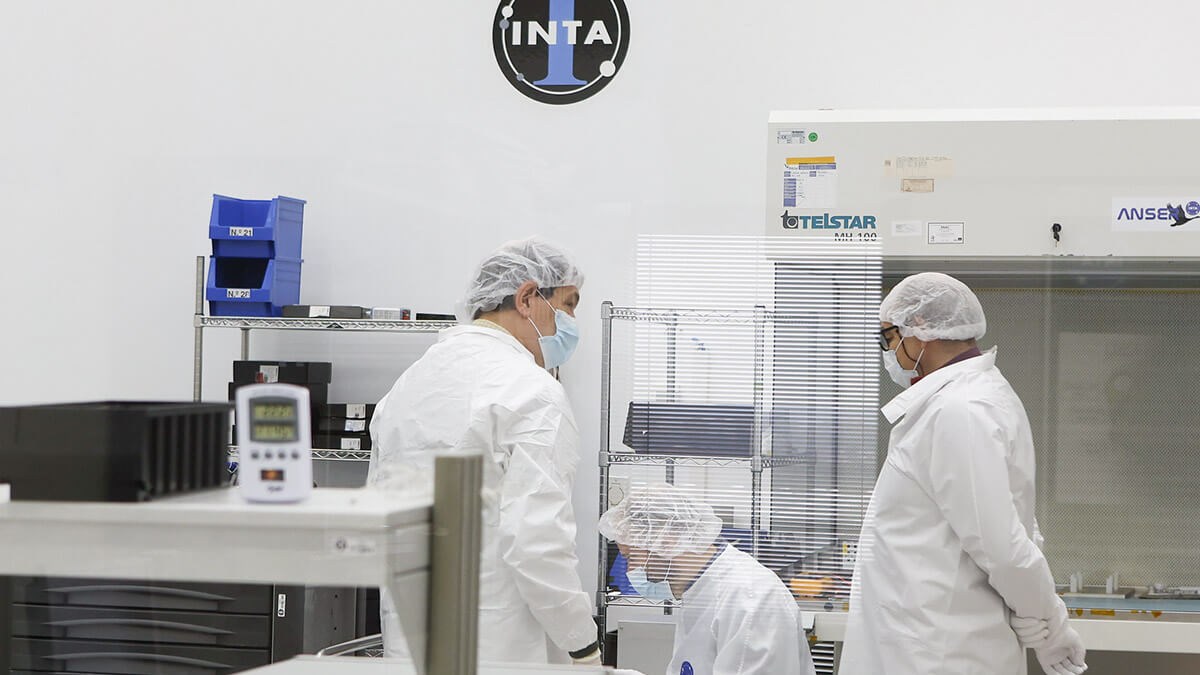
In the absence of a Commissioner to officially lead the aforementioned grand plan, the president has appointed his chief economist and director of the Office of Economic Affairs and G20, Manuel de la Rocha, who holds the administrative rank of secretary of state, to such an important mission. Considered to be Sánchez's economic guru, De la Rocha is already working on defining the guidelines that he will shortly be imparting, so that the ministerial and sectoral documents reach his hands in a timely manner. His final task is to package and bind them in a credible and coherent manner, to convince NATO allies and EU partners of the budgetary effort of the Sánchez government.
Two separate meetings
According to a brief official statement from Moncloa, the aim of the two meetings that the president has already held was to ‘exchange views’ on how Spain can contribute to Europe's security through ‘high technology and improving its strategic capabilities’. For Brussels and the vast majority of European partners, the matter is simpler and they don't think about it so much because, after all, it's about Rearming Europe.
The president and his economic right-hand man, Manuel de la Rocha, held two meetings last Friday, independent of each other. The first was in the morning and ‘lasted an hour and a half, between 10:30 and 12:00’, sources at Moncloa have confirmed. Sánchez was accompanied by the Minister of Science, Innovation and Universities, Diana Morant, and the director of the Spanish Space Agency, Juan Carlos Cortés.
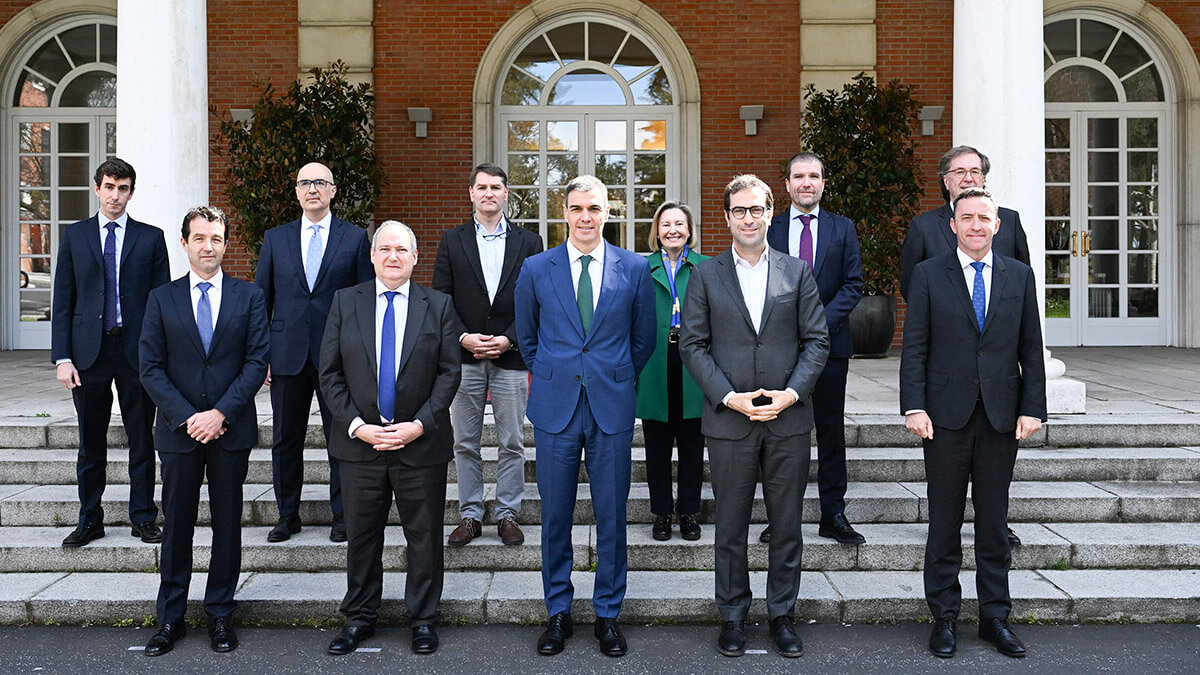
Those invited from the business world were senior executives from the national aerospace and telecommunications sectors. Among them were the president of Hispasat, the main Spanish operator of commercial satellite communications, Pedro Duque; the new president of the technology company Indra, Ángel Escribano; and the presidents of the technology group Oesía and the launch services company PLD Space, Lluís Furnells and Ezequiel Sánchez, respectively.
Also invited to the meeting were the CEO of the space company Satlantis, Juan Tomás Hernani, and that of Telefónica, Emilio Gayo, who has held the post for just a few weeks. With them were the CEO of the technology company GMV, Jesús Serrano, and the new head of Airbus Space Systems in Spain, Raquel González Sola.
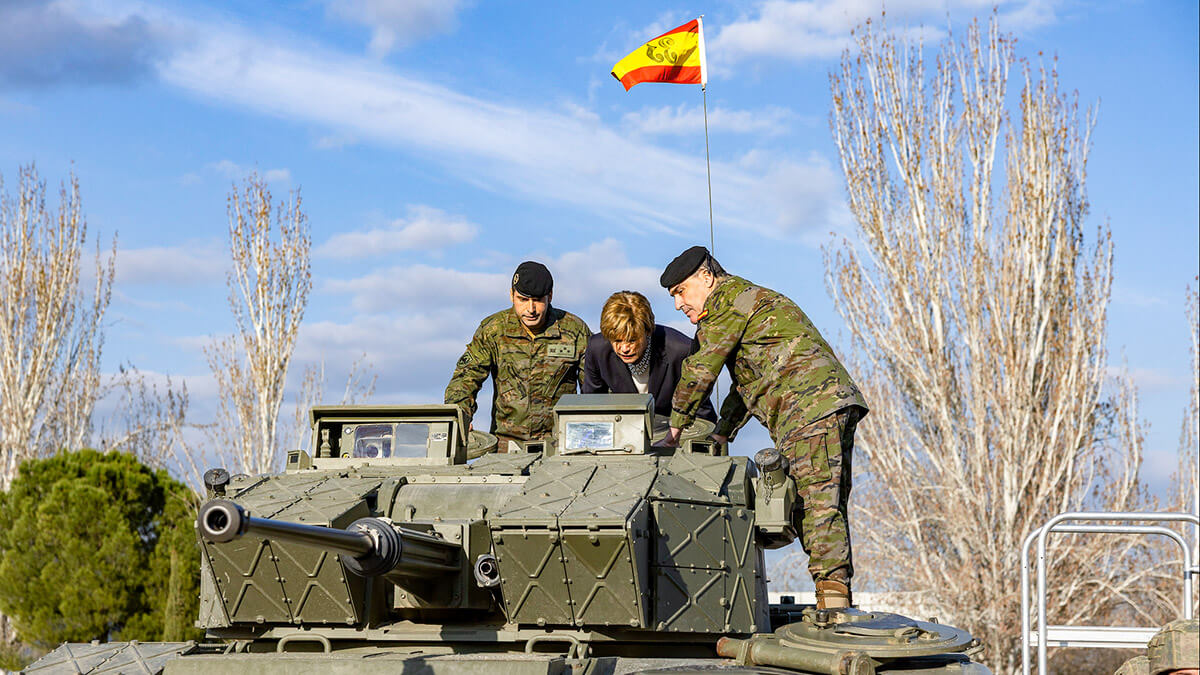
In essence, the meeting gave the president the opportunity to ‘relay and reiterate’ to his guests the most relevant of what he had already said in the plenary session of Congress. He placed special emphasis on the need to strengthen SMEs, launch training projects, create quality employment and purchase products from Spanish and European supply chains. Everyone was aware that it was necessary to highlight the high capacities of the national industry of interest to Spain's friendly, partner or allied nations - for example, laser links, radar imaging and encrypted communications - which are also unknown to the vast majority of Spaniards.
Conclave with defence contractors
Sánchez and his guests agreed on the urgency of committing to ‘disruptive’ technologies that cutting-edge Spanish companies are already working on, to ‘find new space programmes that contribute to deterrence’ and those that can serve to ‘increase efforts to protect the environment and provide more information to prevent the acceleration of climate change.’
In the second meeting with businessmen on the same afternoon of 28 March, Pedro Sánchez was also flanked by Manuel de la Rocha. The meeting was attended by the Minister of Industry, Jordi Hereu, the Minister of Economy, Carlos Cuerpo, and the Secretary of State for Defence, Amparo Valcarce, and focused on what the defence technology sector could contribute from its dual-use aspect.
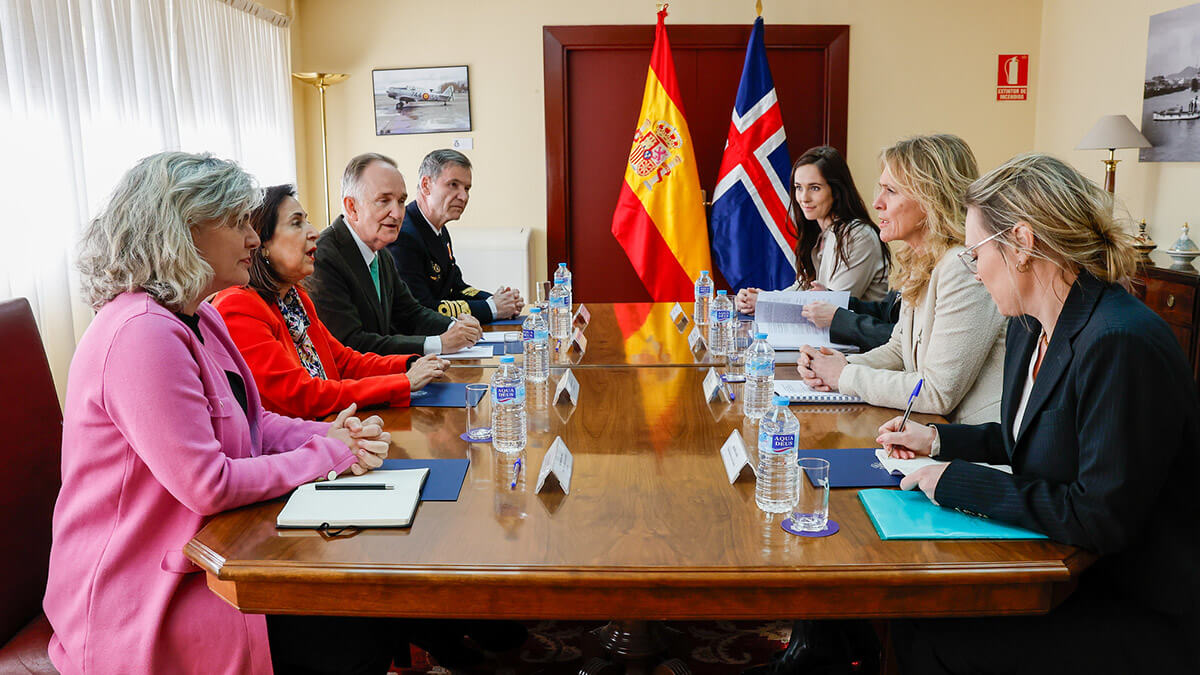
There were fewer industry executives than in the morning session, just six: the president of Airbus Spain, Francisco Javier Sánchez Segura; the president of EM&E Group (until a few weeks ago Escribano M&E), Javier Escribano; the president of the state shipyard Navantia, Ricardo Domínguez; the president of SAPA Placencia, Ibón Aperribay; the CEO of Sener, Jorge Sendagorta; and, once again, the president of Indra, Ángel Escribano.
At the afternoon meeting, the absence of the Minister of Defence, Margarita Robles, replaced by her Secretary of State, was noteworthy. That morning, Robles had held a meeting at Torrejón Air Base (Madrid) with the Icelandic Minister of Foreign Affairs and Defence, Thorgerour Katrín Gunnarsdotti. Also surprising was the non-attendance at either of the two conclaves of the director of the Department of National Security, Air Force General Loreto Gutiérrez Hurtado, who was also not represented by her second in command.
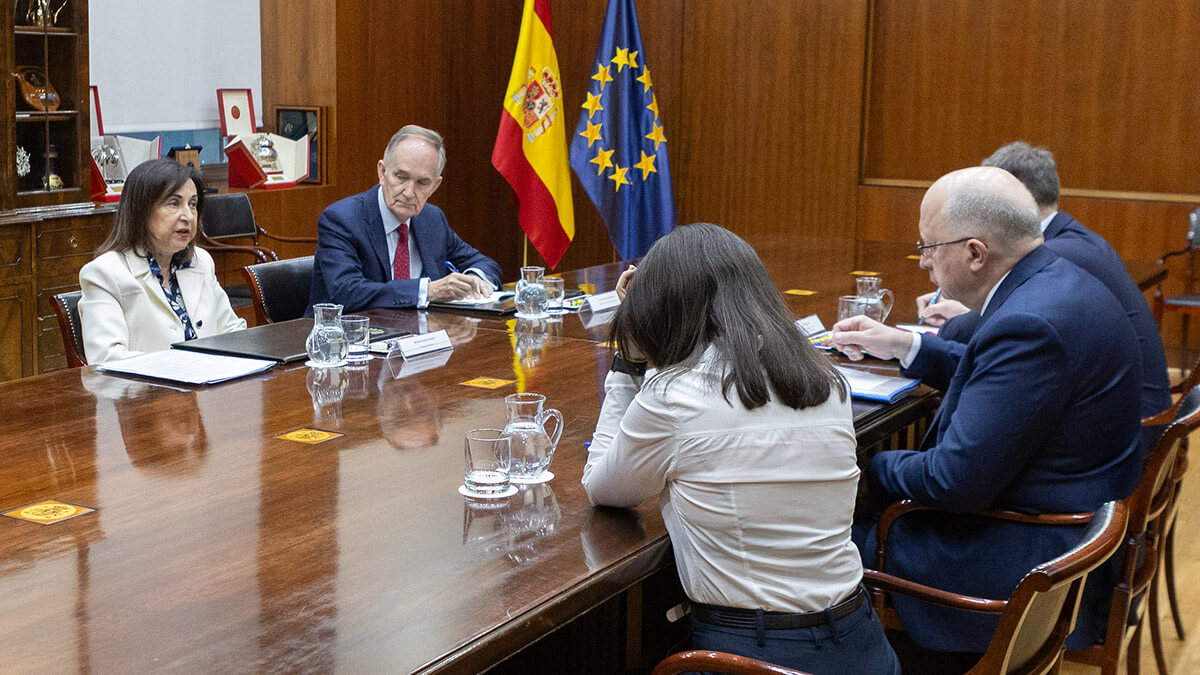
During both meetings, Moncloa wanted to emphasise the importance of ‘advancing towards technological sovereignty, modernising and reinforcing the business fabric and territorial cohesion, creating resilient value chains and strengthening public-private collaboration’. Pending results, Minister Robles met with the European Commissioner for Defence and Space, Lithuanian Andrius Kubilius, in Madrid early this morning, Monday 31st March, to give him verbal assurances and an advance on the path Spain is taking to strengthen its military capabilities.


